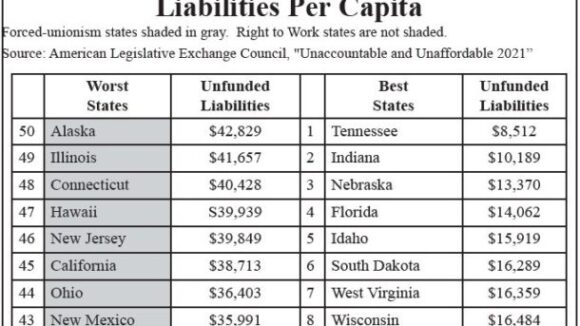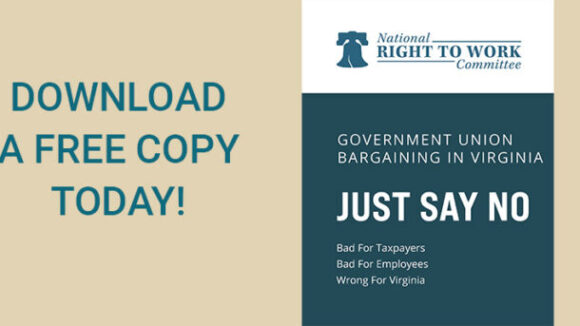Windfall For Derelict Union Pension Fund Chiefs
“The $86 billion giveaway to MEPPs inserted in the Biden Administration’s so-called ‘American Rescue Plan’ [ARP] has set the stage for even bigger bailouts in the future.”
Jonathan R. Laing of Barron’s looks at how the public sector unions are bankrupting the country with their taxpayer-funded pension plans:
Like a California Wildfire, populist rage burns over bloated executive compensation and unrepentant avarice on Wall Street.
Deserving as these targets may or may not be, most Americans have ignored at their own peril a far bigger pocket of privilege — the lush pensions that the 23 million active and retired state and local public employees, from cops and garbage collectors to city managers and teachers, have wangled from taxpayers.
Some 80% of these public employees are beneficiaries of defined-benefit plans under which monthly pension payments are guaranteed, no matter how stocks and other volatile assets backing the retirement plans perform. In contrast, most of the taxpayers footing the bill for these public-employee benefits (participants’ contributions to these plans are typically modest) have been pushed by their employers into far less munificent defined-contribution plans and suffered the additional indignity of seeing their 401(k) accounts shrivel in the recent bear market in stocks.
And defined-contribution plans, unlike public pensions, have no protection against inflation. It’s just too bad: Maybe some seniors will have to switch from filet mignon to dog food.

“The $86 billion giveaway to MEPPs inserted in the Biden Administration’s so-called ‘American Rescue Plan’ [ARP] has set the stage for even bigger bailouts in the future.”

On average, unfunded pension liabilities per capita are 43% lower in Right to Work states than in forced-unionism states.

Just say no to government union bargaining in Virginia In our Republic, all citizens have a right to petition their elected officials for redress of grievances, but no one should have special access to decisions over spending public funds, which monopoly bargaining grants union officials.